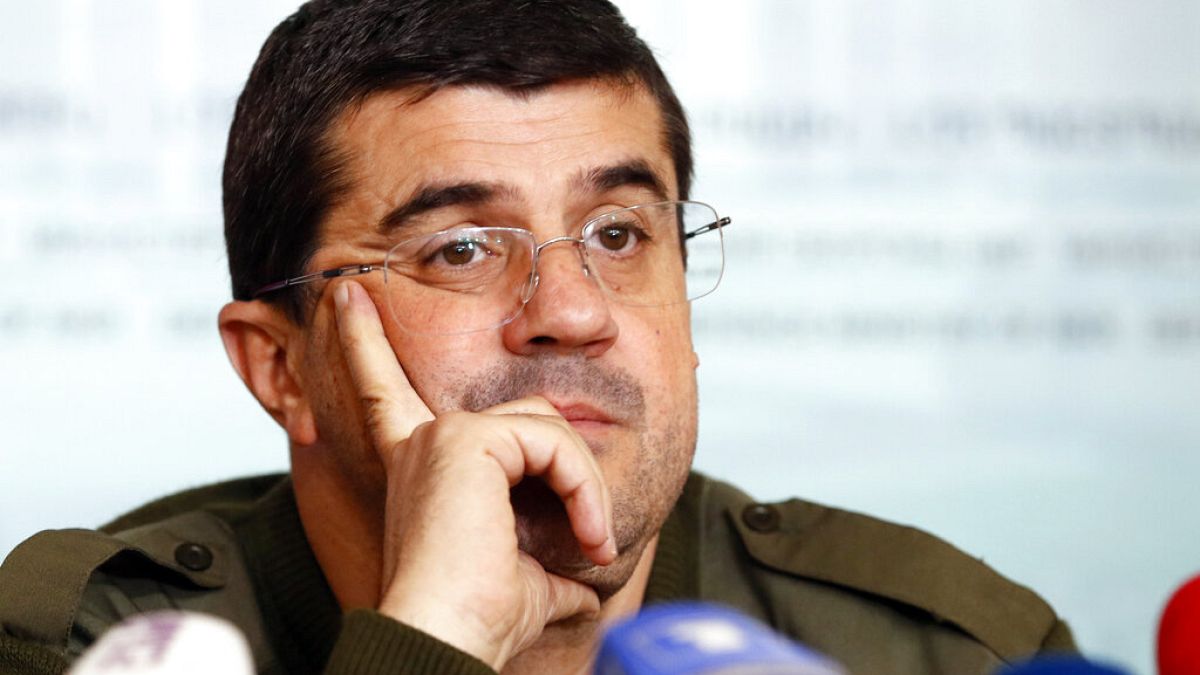Azerbaijan’s prosecutor general issued an arrest warrant for ex-Nagorno-Karabakh leader Arayik Harutyunyan on Sunday as it enforces its grip on the region.
Harutyunyan led the breakaway region, which is internationally recognized as part of Azerbaijan but was largely populated by ethnic Armenians, between May 2020 and the beginning of September. Less than a month later, the separatist government said it would dissolve itself by the end of 2023 after a three-decade bid for independence.
Azerbaijani police arrested one of Harutyunyan’s former prime ministers, Ruben Vardanyan, on Wednesday as he tried to cross into Armenia along with tens of thousands of others who have fled following Baku’s 24-hour blitz last week to reclaim control of Nagorno-Karabakh.
Harutyunyan and the enclave's former military commander, Jalal Harutyunyan, are accused of firing missiles on Azerbaijan's third-largest city, Ganja, during a 44-day war in late 2020, local media reported. The clash between the Azerbaijani military clash and Nagorno Karabakh forces led to the deployment of Russian peacekeepers in the region.
The arrest warrant announcement by Prosecutor General Kamran Aliyev reflects Azerbaijan’s intention to quickly and forcefully enforce its grip on the region following three decades of conflict with the separatist state.
While Baku has pledged to respect the rights of ethnic Armenians in Nagorno-Karabakh, many have fled due to fear of reprisals or losing the freedom to use their language and to practice their religion and cultural customs.
In a briefing on Sunday, Armenia's presidential press secretary, Nazeli Baghdasaryan, said that 100,483 people had already arrived in Armenia from Nagorno-Karabakh, which had a population of about 120,000 before Azerbaijan's offensive.
Some people lined up for days to escape the region because the only route to Armenia — a winding mountain road — became jammed with slow-moving vehicles.
A United Nations delegation arrived in Nagorno-Karabakh Sunday to monitor the situation. The mission is the organisation's first to the region for three decades, due to the “very complicated and delicate geopolitical situation” there, U.N. spokesperson Stephane Dujarric told reporters on Friday.
Local officials dismissed the visit as a formality. Hunan Tadevosyan, spokesperson for Nagorno-Karabakh’s emergency services, said the U.N. representatives had come too late and the number of civilians left in the regional capital of Stepanakert could be “counted on one hand.”
“I did the volunteer work. The people who were left sheltering in the basements, even people who were mentally unwell and did not understand what was happening, I put them on buses with my own hands and we took them out of Stepanakert,” Tadevosyan told Armenian outlet News.am.
“We walked around the whole city but found no one. There is no general population left,” he said.
Armenian Health Minister Anahit Avanesyan said some people, including older adults, had died while on the road to Armenia as they were “exhausted due to malnutrition, left without even taking medicine with them, and were on the road for more than 40 hours.”
Armenian Prime Minister Nikol Pashinyan alleged Thursday that the exodus of ethnic Armenians from Nagorno-Karabakh amounted to “a direct act of an ethnic cleansing and depriving people of their motherland.”
Azerbaijan’s Foreign Ministry strongly rejected Pashinyan’s accusations, saying the departure of Armenians was “their personal and individual decision and has nothing to do with forced relocation.”
